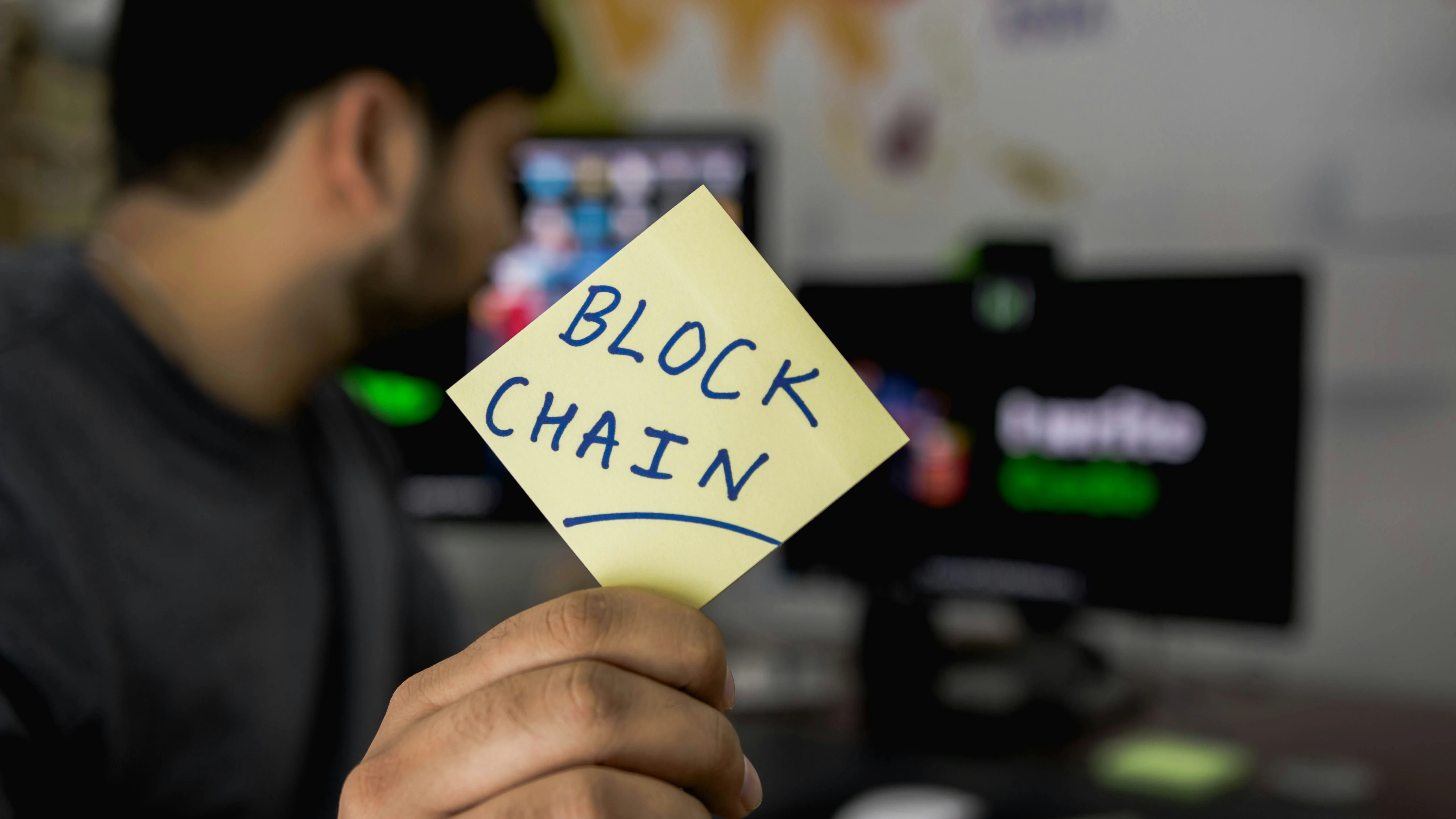
This website uses cookies
We use Cookies to ensure better performance, recognize your repeat visits and preferences, as well as to measure the effectiveness of campaigns and analyze traffic. For these reasons, we may share your site usage data with our analytics partners. Please, view our Cookie Policy to learn more about Cookies. By clicking «Allow all cookies», you consent to the use of ALL Cookies unless you disable them at any time.
Introduction
Blockchain technology, often synonymous with cryptocurrencies, encompasses far more than the world of digital finance. At its core, blockchain is a decentralized digital ledger that records transactions across many computers in such a way that the registered transactions cannot be altered retroactively. This inherent security and transparency provide fertile ground for innovative applications beyond mere currency exchange.
The connection between blockchain and social impact is both profound and promising. By democratizing access to data and reducing the reliance on centralized authorities, blockchain paves the way for more equitable and empowered communities. This technology can be leveraged to address some of the most pressing issues faced by society today - from financial exclusion to corruption, and environmental degradation.
Asserting the potential of blockchain in strengthening communities involves looking at how decentralized approaches to finance, data management, and resource distribution can reshape societal structures. Communities equipped with blockchain tools can achieve greater autonomy, manage resources more efficiently, and foster a transparent environment where decisions are made openly and fairly.
Furthermore, blockchain's potential to advance sustainability is significant. By enabling smarter resource management and enhancing the traceability of goods, blockchain technologies foster not just economic but environmental sustainability. Blockchain can track the provenance of goods from origin to shelf, ensuring products are ethically sourced and produced without exploiting labor or the environment.
Blockchain for Economic Inclusion
Overview of the Issue of Financial Inequality
Financial inequality remains one of the most intractable challenges of our time, affecting billions of people across the globe. A significant number of individuals lack access to basic banking services, including savings accounts, credit, and insurance, which hinders their ability to engage in economic activities and improve their living conditions. Traditional banking infrastructures often fail to reach remote or impoverished areas, and the costs associated with setting up and maintaining bank accounts can be prohibitively high for low-income individuals.
The Role of Blockchain in Ensuring Financial Inclusion
Blockchain technology offers a groundbreaking solution to these challenges. By its nature, blockchain provides a decentralized framework, which means it does not require the same physical infrastructure or intermediation by traditional financial institutions. This lowers the barriers to entry for financial services. Furthermore, blockchain's inherent security and transparency features make it an ideal platform for creating trustworthy systems that are accessible to everyone, including those in underserved or unstable regions.
Decentralized financial services (DeFi) built on blockchain technology can provide secure, transparent, and inclusive financial services. These services include microloans, peer-to-peer lending platforms, and affordable remittance services, all of which are accessible via simple smartphone applications. Such innovations are crucial in bridging the gap between the financially underserved populations and the economic activities that can uplift them.
Examples of Initiatives and Projects for Financial Inclusion Based on Blockchain
BitPesa
BitPesa uses blockchain technology to facilitate business transactions between African countries and the rest of the world through fast, low-cost payments. This has particularly impacted small and medium enterprises (SMEs) in Africa, enabling them to engage in international trade more efficiently.
BanQu
BanQu is a blockchain platform that assists displaced and impoverished people in creating economic identities by recording their financial history on a secure, transparent ledger. This process helps them gain access to banking services that were previously out of reach due to a lack of formal documentation.
Grameen Foundation
The Grameen Foundation has launched blockchain-based projects in collaboration with RippleWorks to improve the transparency and efficiency of philanthropic contributions and microfinance. This helps ensure that aid reaches the intended beneficiaries without leakage or corruption.
These examples illustrate how blockchain can be leveraged to create more inclusive financial systems that not only provide access to basic services but also empower individuals by integrating them into a broader economic system. This integration is essential for reducing financial inequality and promoting a more equitable global economy.
Enhancing Transparency and Accessibility
The Importance of Transparency in Social and Environmental Projects
Transparency is a cornerstone of effective and accountable governance and project management, particularly in the social and environmental sectors. It helps build trust among stakeholders, ensures efficient use of resources, and enhances the impact of interventions. Unfortunately, many projects suffer from a lack of transparency, which can lead to mismanagement, corruption, and diminished outcomes. For environmental initiatives, where tracking the origin and sustainability of products is crucial, transparency can significantly influence the success and credibility of such projects.
How Blockchain Improves the Level of Transparency and Accessibility of Data
Blockchain technology introduces a high level of transparency and data integrity by design. Each transaction on a blockchain is recorded in a way that is immutable and transparent to all participants. This ensures that once data about transactions or operations is entered into the blockchain, it cannot be altered or deleted, providing a permanent and public record. Moreover, blockchain's decentralized nature eliminates the need for a central authority, thus reducing potential points of corruption or bias.
Accessibility is also greatly enhanced through blockchain. Information on a blockchain can be accessed by any participant with the necessary permissions, regardless of their location. This democratization of data access ensures that all stakeholders, including the most marginalized, have the same information as more powerful entities, promoting fairness and equity.
Successful Use Cases of Blockchain to Increase Transparency
Supply Chain Monitoring
Companies like IBM have launched blockchain initiatives to track the supply chain journey of consumer goods from the producer to the end consumer. This transparency helps ensure that products are sourced ethically and sustainably. For example, the use of blockchain in the diamond industry allows for the tracing of stones from the mine to the retail environment, ensuring they are conflict-free.
Land Registry
Several countries, including Sweden and Georgia, have experimented with blockchain-based land registries. By securing property rights on a blockchain, governments can provide a clear, indisputable record of ownership and history of transactions, which enhances transparency and reduces the potential for fraud.
Charitable Donations
Organizations such as GiveTrack use blockchain technology to track the flow of charitable donations from donors to the final recipients. This transparency ensures that funds are used appropriately, increasing donor confidence and encouraging further philanthropy.
By enhancing transparency and accessibility, blockchain technology not only promotes trust and accountability in social and environmental projects but also empowers communities by providing them with the tools needed to monitor and influence these projects actively. This fosters a more engaged and informed public, which is crucial for the sustainable development and ethical governance of any community.
Supporting Environmental Sustainability
Challenges Facing Sustainable Development
Sustainable development faces a myriad of challenges, ranging from resource depletion and pollution to climate change and loss of biodiversity. Traditional approaches to addressing these challenges often encounter obstacles such as lack of transparency, difficulty in tracking environmental impact, and insufficient collaboration among stakeholders. These challenges hinder progress toward achieving environmental sustainability goals and exacerbate the urgency of finding innovative solutions.
How Blockchain Can Contribute to Environmental Sustainability
Blockchain technology offers a promising solution to many of the challenges facing environmental sustainability. By its nature, blockchain provides a transparent, immutable, and decentralized ledger, which can significantly improve the tracking, monitoring, and management of environmental resources and activities.
Traceability and Accountability: Blockchain enables the transparent tracking of the lifecycle of products, from raw material extraction to manufacturing, distribution, and disposal. This traceability allows consumers to make informed choices about environmentally-friendly products and holds companies accountable for their environmental impact.
Carbon Footprint Reduction: Smart contracts on blockchain platforms can automate and enforce carbon offsetting mechanisms, ensuring that businesses adhere to emission reduction commitments. Additionally, blockchain can facilitate the trading of carbon credits, incentivizing companies to reduce their carbon footprint and invest in sustainable practices.
Conservation and Wildlife Protection: Blockchain technology can be used to create digital identities for endangered species, enabling real-time monitoring of their movements and protection against illegal poaching and trafficking. Projects like Wildchain utilize blockchain to crowdfund conservation efforts and engage the public in wildlife protection initiatives.
Examples of Projects Aimed at Environmental Sustainability Using Blockchain
Energy Trading Platforms: Platforms like Power Ledger enable peer-to-peer trading of renewable energy generated from sources such as solar panels. By utilizing blockchain, these platforms ensure transparency and fairness in energy transactions, promoting the adoption of clean energy sources and reducing reliance on fossil fuels.
Waste Management and Recycling: RecycleGO leverages blockchain to create a transparent and efficient supply chain for recycling materials. By tracking the movement of recyclables from collection to processing, blockchain reduces inefficiencies and fraud in the recycling process, leading to increased recycling rates and reduced waste pollution.
Water Management Systems: The WaterChain project utilizes blockchain to monitor and manage water usage in agricultural and industrial settings. By recording water consumption data on a transparent ledger, stakeholders can identify areas for conservation and optimization, ultimately leading to more sustainable water management practices.
Blockchain technology holds immense potential to support environmental sustainability by addressing key challenges and fostering transparency, accountability, and collaboration among stakeholders. As demonstrated by these examples, blockchain-based solutions can revolutionize the way we approach environmental conservation and sustainable development, paving the way for a greener and more sustainable future.
Overcoming Challenges and Future Perspectives
Identifying Obstacles to Scaling Blockchain for Social Impact
Scalability Issues:
Challenge: Blockchain networks often struggle to handle large transaction volumes efficiently, leading to congestion and high fees.
Solution: Layer 2 scaling solutions like the Lightning Network and sharding techniques are being developed to increase transaction throughput and reduce latency.
Regulatory Uncertainty:
Challenge: The regulatory landscape surrounding blockchain and cryptocurrencies varies widely across different jurisdictions, creating uncertainty for adoption.
Solution: Collaboration between industry stakeholders, governments, and regulatory bodies is crucial to establish clear frameworks that balance innovation with consumer protection and compliance.
Interoperability Challenges:
Challenge: The lack of interoperability between different blockchain platforms inhibits seamless data exchange and integration.
Solution: Initiatives such as cross-chain protocols and standardization efforts aim to bridge interoperability gaps, facilitating smoother interactions between diverse blockchain networks.
Ways to Overcome These Obstacles
Collaborative Ecosystem Development:
Approach: Foster collaboration among blockchain developers, businesses, governments, and NGOs to address technical challenges and regulatory concerns collectively.
Benefit: By pooling resources and expertise, stakeholders can accelerate innovation, develop interoperable solutions, and navigate regulatory complexities more effectively.
Education and Awareness:
Approach: Increase public understanding of blockchain technology and its potential for social impact through educational initiatives, workshops, and outreach programs.
Benefit: Enhanced awareness fosters trust and adoption, empowering communities to leverage blockchain solutions for their specific needs while encouraging policymakers to enact supportive regulations.
User-Centric Design:
Approach: Prioritize user experience and accessibility in the design and implementation of blockchain applications, ensuring intuitive interfaces and inclusive features.
Benefit: By removing technical barriers and catering to diverse user demographics, blockchain solutions can reach broader audiences, maximizing their social impact potential.
Future Prospects for the Use of Blockchain to Strengthen Communities and Support Sustainability
Enhanced Transparency and Accountability:
Blockchain's immutable ledger enables transparent tracking of resources and transactions, fostering trust and accountability within communities and promoting sustainable practices across supply chains.
Decentralized Governance Models:
Blockchain-based decentralized autonomous organizations (DAOs) offer novel governance structures that empower community members to participate in decision-making processes, driving inclusive development and collective stewardship of resources.
Tokenization of Assets:
Tokenization enables fractional ownership and transferability of assets, unlocking liquidity and access to capital for community-driven projects such as renewable energy initiatives, affordable housing, and microfinance programs.
Impact Investing and Social Finance:
Blockchain-powered platforms facilitate transparent and efficient impact investing, connecting socially conscious investors with projects aligned with their values, thereby catalyzing sustainable development and poverty alleviation efforts.
While challenges persist, the future outlook for blockchain in strengthening communities and promoting sustainability is promising. Through collaborative efforts, continued innovation, and a commitment to user-centric design, blockchain technology has the potential to revolutionize social impact initiatives and create lasting positive change on a global scale.
Conclusion
Throughout this discussion, the transformative potential of blockchain technology in empowering communities and advancing sustainability goals has been delineated. The decentralized nature of blockchain not only enhances transparency and accountability but also facilitates financial inclusion and secure identity verification, which are pivotal for empowering marginalized communities worldwide.
Key Points Summarized
Financial Inclusion and Identity Verification:
Blockchain provides mechanisms for secure financial transactions and identity verification, crucially supporting those without access to traditional banking or legal identification. This enables broader access to essential services and economic participation.
Transparency and Efficiency:
The immutable and transparent nature of blockchain ensures that transactions are traceable and auditable by all stakeholders involved, reducing corruption, enhancing trust, and promoting efficient use of resources.
Decentralized Solutions:
Through decentralized applications (DApps) and decentralized autonomous organizations (DAOs), blockchain enables innovative governance models and community-driven initiatives that ensure greater participation and equitable resource distribution.
Sustainable Development:
Blockchain's ability to securely track and manage assets leads to more sustainable practices, particularly in sectors like supply chain management, where it ensures the ethical sourcing and distribution of goods.
Significance of Blockchain in Achieving Social and Environmental Goals
The implementation of blockchain goes beyond technological innovation; it represents a shift towards more inclusive and sustainable societal structures. By providing tools for improved governance, economic empowerment, and resource management, blockchain acts as a catalyst for social and environmental change. It offers practical solutions for the pressing challenges of our times, such as poverty, inequality, and environmental degradation.
Furthermore, blockchain's role in facilitating impact investing opens new avenues for funding projects that address global challenges. It creates a bridge between investment and philanthropy, attracting capital towards initiatives that yield both financial returns and social benefits.
Looking Forward
As the technology matures and more stakeholders recognize its potential, the integration of blockchain into various sectors will likely expand. Continued collaboration between technologists, policymakers, and community leaders will be essential to navigate the challenges and harness the full potential of blockchain. The focus must remain on developing scalable, user-friendly blockchain solutions that are accessible to all, ensuring that no one is left behind in the digital divide.
In conclusion, blockchain is not just a technological innovation but a tool for social and environmental reform. Its ability to empower communities and drive sustainable development positions it as a key player in the quest for a more equitable and sustainable future. Notably, Technorely has been recognized as one of the Top Blockchain Development Companies by Vendorland, underscoring its pivotal role in this evolving landscape.




